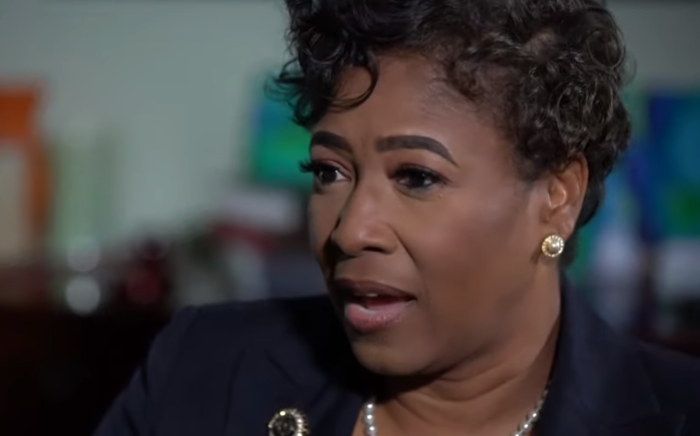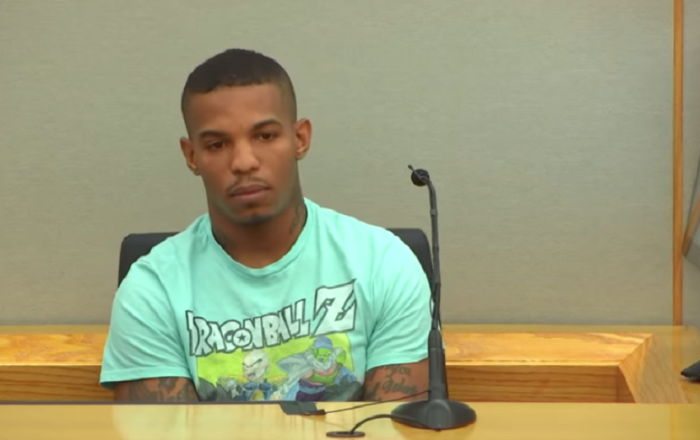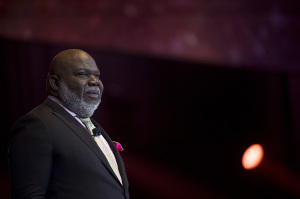Christian judge in Botham Jean case doesn’t regret hugging Amber Guyger as accusations of partiality grow

Dallas County District Court Judge Tammy Kemp is defending her decision to hug former Dallas Police Officer Amber Guyger and give her a Bible after she was sentenced to 10 years in prison for the murder of Botham Jean last Wednesday. Atheist groups and many in the black community have expressed outrage over it.
Kemp, who said she doesn’t regret showing compassion to Guyger, said she obliged the former officer out of Christian compassion.
She shared with The New York Times that she currently serves as a deaconess at a church in Dallas where she has been a member for more than 25 years. The 57-year-old is also a firm believer in redemption and generally keeps a Bible in her chambers as a reminder to start her day with prayer.
While her gestures to Guyger may have roiled some onlookers, Kemp said she usually encourages defendants who appear in her courtroom to use their time in prison to make positive life changes and Guyger asked for her advice.
Kemp said at the end of the trial, which included an emotional moment in which she allowed Brandt Jean, the younger brother of Botham Jean, to hug the former officer after he publicly forgave her, she went over to Guyger and encouraged her to change her life.
“I said to her, ‘Ms. Guyger, Brandt Jean has forgiven you. Now please forgive yourself so that you can live a productive life when you get out of prison,’” Kemp said.
“She asked me if I thought her life could have purpose,” Kemp recalled. “I said, ‘I know that it can.’ She said, ‘I don’t know where to start, I don’t have a Bible,’” That’s when Kemp said she went to her chambers and got her Bible and read John 3:16 with Guyger.
That response, Kemp said, triggered a surprising request from Guyger — she asked the judge for a hug.
Kemp said she was caught off guard by the request and hesitated for a moment before obliging as she had previously done with defendants who successfully completed probation or drug treatment many times. She explained that even though she couldn’t recall ever hugging a convicted killer, she relented after Guyger pleaded a second time.
The only regret she has was not hugging Guyger the first time, she said.
“I’m a little embarrassed to say she had to ask me twice,” Kemp told the Times.
“The act that she committed was horrific — she murdered Mr. Jean,” she explained. “But none of us are one thing that we’ve done.”
Kemp said Scripture had also helped her make the decision to grant Guyger’s request for a hug, specifically a message she had only heard two weeks earlier on The Parable of the Lost Sheep.
“Our pastor had said: ‘If we’re going to attract the one, we’ve got to show love and compassion.’ And then I also thought, God says my job is to do justice, love mercy and walk humbly,” Kemp told the Times. “So how can you refuse this woman a hug?”
Both Kemp and Brandt Jean have been highly praised for being exemplary Christians by many white conservatives, such as senior editor and blogger at The American Conservative Rod Dreher.
“If this country, the United States of America, is going to be saved, it is going to be through the faith and love and deeds of men and women like Brandt Jean and Judge Tammy Kemp. Not the left-wing and the right-wing political preachers with big congregations and slots on national TV. Humble, everyday believers like these two — they will be the ones, if there are enough of them left,” Dreher wrote in an op-ed last Thursday.
Many in the black Christian community, however, didn’t find the gesture redemptive. And more controversy surrounded the case after the mysterious murder of Joshua Brown, 28, a former neighbor of Botham Jean who testified as a key witness during Guyger’s trial.
Bishop Talbert Swan, pastor of Spring of Hope in Springfield, Massachusetts, wrote that Kemp "should’ve never come off the bench. How many Black murderers do you come off the bench to talk to, embrace, and give Bibles to? As Christians we’re supposed to do our jobs in the secular world. We can show love & compassion without crossing boundaries of professionalism."
Lee Merritt, an attorney representing the Jean family, charged on Twitter Tuesday that the state failed to protect Brown.
“The State knew Joshua Brown didn’t want to testify due to concerns for his safety. He flew to California when the trial began. They threatened him with jail if he didn’t return. He went straight from the airport to the court. Dallas County has a duty to protect him. They failed,” he wrote.
According to AP, Brown's mother told Merritt about Brown's reluctance to testify in the trial.
Georgia megachurch pastor and activist Jamal Bryant criticized Kemp in an Instagram post Tuesday for not showing Brown the same Christian compassion when he privately expressed concerns about his safety to Kemp. Kemp, said Bryant, “refused to give him (Brown) covering for his security.”
“Last week everyone was praising judge #tammykemp for hugging #amberguyger and giving her a bible. Now that [Brown] has been assassinated more info is coming to light. He was apprehensive about testifying because he felt life was in danger. He expressed his concerns to the judge in private chambers and she still refused to give him covering for his security. When asked to be excused the judge in video above said ‘I’m surprised he showed up’ not the appropriate persona of an impartial judge...this case stinks to high heaven. For the record this isn’t hate mongering it’s truth telling. I realize truth is uncomfortable for many but James Baldwin told us ... ‘you can’t fix it until you face it,’” Bryant wrote.
Brown, according to CBS, was set to testify in a civil case the Jean family filed against the city of Dallas for the murder of their son. He was expected to be one of the first witnesses called.
There are currently no known suspects in Brown's murder as the Dallas Police continue to investigate.
The NAACP Legal Defense and Educational Fund, Inc., has also called for an independent investigation of Brown’s murder.
“The circumstances surrounding the murder of Mr. Brown cries out for answers. Most importantly, it demands an independent investigation of how and why he was killed,” said Sherrilyn Ifill, the LDF’s president and director-counsel, in a statement Sunday.
“We urge state or federal authorities to follow the trail of misconduct left by this case and fully investigate the circumstances surrounding Mr. Brown’s death. It is critical to public confidence in the administration of justice that witnesses who speak out against police violence are fully protected,” Ifill noted. “The suspicious circumstances of Mr. Brown’s killing should cause great alarm and demand an immediate and piercing inquiry. We echo Allison Jean’s statement that the ‘corruption we saw during this process must stop,’” Ifill added.

The Freedom From Religion Foundation complained about Kemp’s proselytizing in the courtroom to Texas’ Commission on Judicial Conduct.
“We understand that it was an emotional moment, particularly when the victim’s brother, Brandt Jean, publicly forgave and hugged Guyger. It is perfectly acceptable for private citizens to express their religious beliefs in court, but the rules are different for those acting in a governmental role,” wrote FFRF Co-Presidents Dan Barker and Annie Laurie Gaylor.
“Even were Guyger an avowed devout Christian, the gesture would still have been inappropriate and unconstitutional because Judge Kemp was acting in her official governmental capacity,” they continued.
“She (Kemp) was in a government courtroom, dressed in a judicial robe, with all of the imprimatur of the state, including armed law enforcement officers, preaching to someone who was quite literally a captive audience, and even instructing her on which bible verses to read! The judicial office, title, trappings, and power belong to ‘We the People,’ not to the office’s temporary occupant. Delivering bibles and personally witnessing as a judge is an egregious abuse of power. Judge Kemp transmitted her personal religious beliefs as a state official in an official proceeding of the gravest nature, a setting that imposed on everyone in the courtroom: attorneys, staff, family members and the convicted.”





























